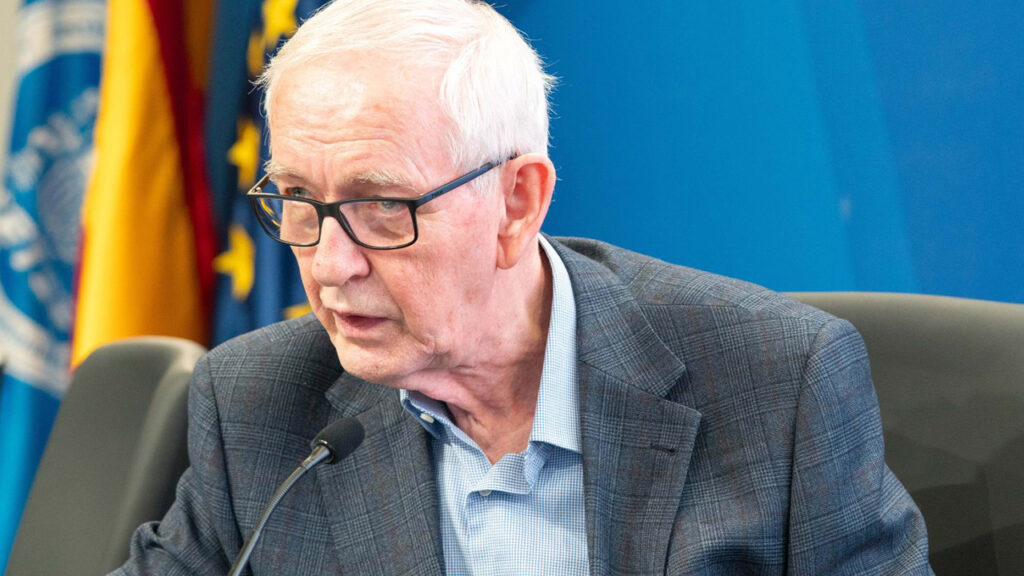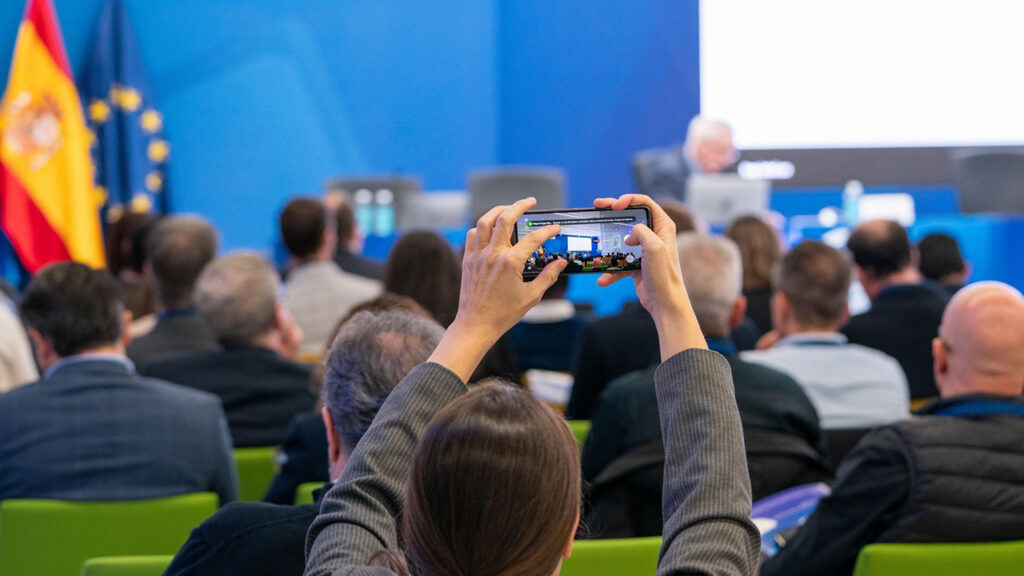On December 13, 2024, the inaugural Detection Hub workshop took place at the premises of CETSE – Centro Tecnológico de Seguridad in Madrid, Spain. The event brought together professionals and experts in civil security, law enforcement, and border management to discuss innovative scientific approaches to the detection of drugs, explosives, and illicit goods. Coorganized by BAG-INTEL in collaboration with other EU-funded initiatives, the workshop aimed to foster knowledge exchange, strengthen collaboration, and explore the challenges and opportunities in detection technologies.
Opening Remarks
The workshop was opened with insightful remarks from:
- Manuel Jesus Izquierdo Bernal, Deputy Director General of Communication & Information Systems for Security at the Spanish Ministry of Interior
- Dimitrios Myttas, Head of Border Security and Control Sector at the Center for Security Studies (KEMEA)
Their speeches underscored the critical need for innovation in detection technologies and the role of multi-sectoral collaboration in enhancing security capabilities.
Featured Presentations

The workshop featured presentations from the co-organizing projects:
- BAG-INTEL by Henrik Larsen, Legind Technologies
- DrugDetect by Anastasia Tigka, KEMEA
- MELCHIOR by Julio César Saavedra González, University of Alcala
- PARSEC by Trevor Francis, UK Border Force
Each presentation highlighted the latest advancements and objectives of the respective projects, showcasing innovative approaches to enhance detection capabilities.
Panel Discussions
Panel 1: Innovation Procurement for Detection – Bridging Theory and Practice
Moderated by Eleni Lianou, KEMEA, this panel addressed the complexities of aligning public procurement processes with technological advancements. Among the panelists were:
- Ramona Apostol, Ministry of Justice and Security, the Netherlands
- Trevor Francis, UK Border Force
- Jose Luis Perez-Díaz, University of Alcala
- Trey Sieger, 908 Devices
Key Takeaways:
- Aligning public procurement strategies with emerging technologies.
- Bridging theoretical research with practical, real-world applications.
- Strengthening cross-sector collaboration to enhance detection innovation.
Panel 2: Multi-Sectoral Detection of Illicit Goods – Operational Experiences and Capabilities
Moderated by Gerke Luinge-Damsma, SAXION University of Applied Sciences, this panel focused on operational challenges and experiences in implementing detection technologies. Panelists included:
- Jörn Patzak, Wittlich Prison, Germany
- Marcel Heerschop, Senior Expert in Detection Technology
- Christos Psychos, Grevena Prison, Greece
- Miguel de la Rubia Rodiz, Spanish Tax Administration Agency (AEAT)
- Martin Palmer, Hurricane Modular Commerce Ltd
Key Takeaways:
- Enhancing operational capabilities for detecting illicit goods.
- Strengthening multi-sectoral collaborations for effective detection strategies.
- Addressing practical challenges and proposing improved methodologies.
Closing Session and Evaluation
The event concluded with an evaluation session led by KEMEA. This session provided an opportunity to gather feedback on existing detection procedures, propose strategies for enhanced security, and discuss future advancements in detection technologies and public procurement.
Conclusion

The DETECTION HUB Workshop successfully established itself as a pivotal platform for fostering collaboration and innovation in the detection of drugs, explosives, and illicit goods. With the active participation of EU-funded projects, the event demonstrated the value of clustering scientific approaches to address shared challenges. The workshop’s outcomes pave the way for future advancements in civil security and border management, ensuring safer and more efficient detection capabilities across Europe.
The Detection Hub Workshop was part of a broader dissemination and communication initiative involving multiple EU-funded projects, which aims to:
- Discuss challenges faced by law enforcement agencies (LEAs) in detecting illicit goods.
- Present projects’ objectives and findings.
- Identify common targets and exploitation opportunities.
- Inform the market and engage end-users from various sectors, including police and customs authorities, among others.
“It was a pleasure to coorganize this workshop and present the BAG-INTEL project to a group of experts from diverse sectors including industry, end-users, security organizations, and academia. The workshop showed interesting advances in detection technology and security solutions and gave rise to fruitful discussions and new contacts.” – Henrik Larsen, the BAG-INTEL Project Coordinator
